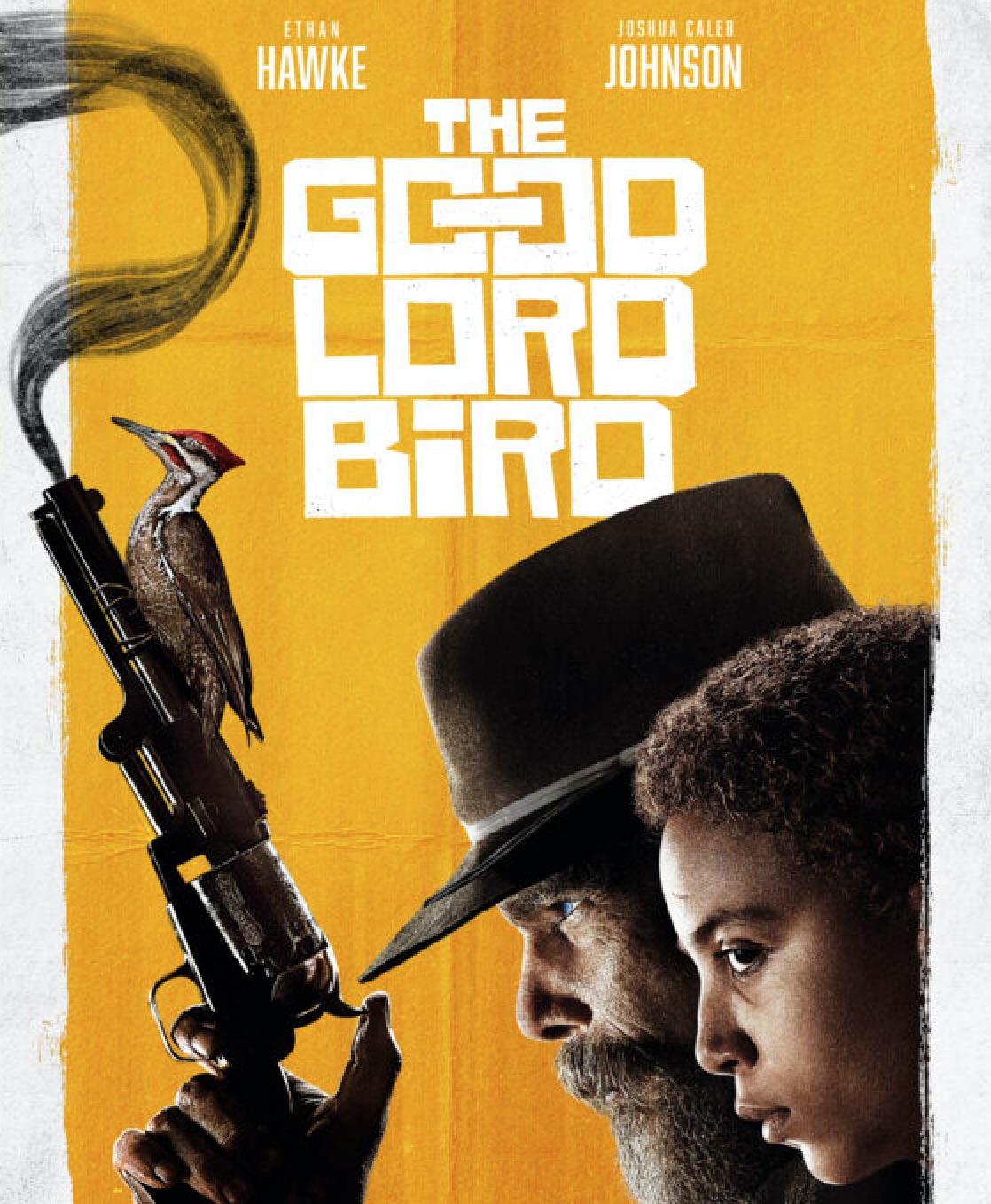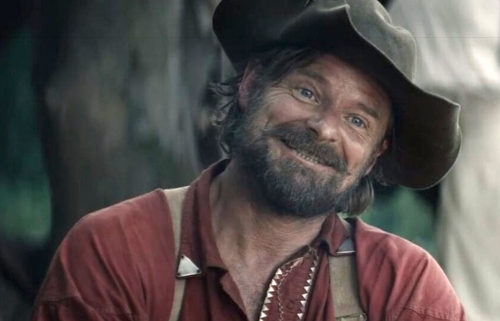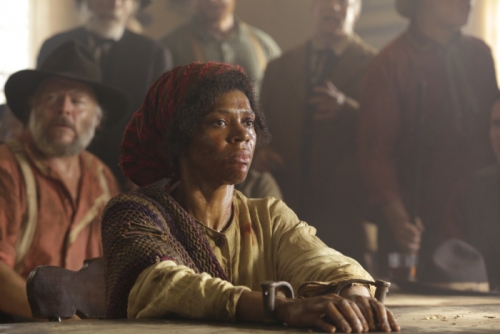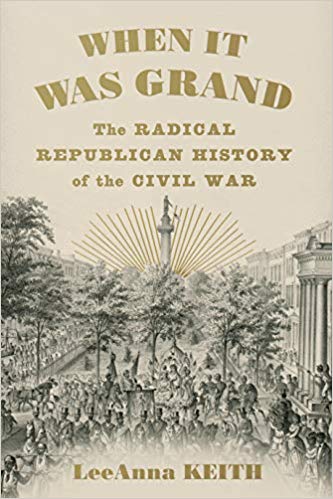
On October 4, 2020, The Good Lord Bird, a 7-part miniseries about the life of abolitionist John Brown—based on the award-winning novel of the same name by James McBride—premiered on Showtime. We enlisted historian Megan Kate Nelson to watch and review the series, episode by episode. We’ll publish her takes below, as each episode airs. Episode Two: “A Wicked Plot” (aired October 11, 2020) The second episode of The Good Lord Bird is Onion’s to carry. The Brown gang leaves him and Bob (Hubert Point-Du Jour) in the woods while they ride off to gather supplies. Rather than wait on them, Bob decides to go his own way, and Onion joins him. On the road, two “red shirts” (pro-slavery border ruffians) overtake them. One of them, Chase (Steve Zahn), is taken with Onion, and a hilarious and off-color misunderstanding regarding Onion’s “trim” business leads him to divert them to Pikesville, Missouri. Once they arrive, Chase sells both Onion and Bob to a brothel madam to settle his debt. What ensues is a closer look at the worlds of enslaved women and men in Missouri.
Two women control this world in Pikesville, in different ways: Pie (Natasha Marc), a beautiful prostitute, has the most prominent white men in town on her client list; and Sibonia (Crystal Lee Brown), a leader in the slave pen, pretends to be crazy while organizing a mass escape (the “wicked plot” of the episode’s title).

Steve Zahn as “Chase” in “The Good Lord Bird.”
Both of these women see Onion for who he is, and exploit him accordingly. In exchange for Pie’s silence about his true gender identity, Onion teaches Pie her letters. He promises Sibonia he will write her free papers and passes. He is terrified of Sibonia, and in love with Pie; he betrays the former to gain favor with the latter. And so treachery becomes a major theme in this episode. When Pie reveals the plot to the town’s white leaders and Onion reproaches her for it, Pie is scornful. “Coloreds turn the tables on one another all the time,” she says. “Just like whites. Difference is, whites put theirs on paper.” Sibonia and Pie enter The Good Lord Bird to illuminate this dynamic. They also provoke a transformation in Onion. After the town hangs Sibonia, her sister, and several other enslaved women and men who were involved in the plot, John Brown returns and attacks Pikesville with his gang. Onion takes the opportunity that the battle’s chaos provides to free the enslaved people remaining in the pen, including Bob. In a New Yorker Festival session this past weekend, the historian Manisha Sinha chatted with Ethan Hawke and James McBride about many aspects of the novel and the show, and she asked about the function of supporting characters like Sibonia and Pie. Sibonia’s story, McBride noted, was necessary to give Onion the opportunity to display both “brutality and courage,” an essential part of his journey. This comment—the episode 2’s narrative arc—reveals that the novel and the TV series are about John Brown and his abolitionist cause, but they are also about Onion’s coming-of-age.

Crystal Lee Brown as “Sibonia” in a scene from episode 2 of “The Good Lord Bird.”
The episode ends with the battle scene. As bullets fly around, Brown harangues Onion for drinking and falling in love but then declares that since Onion has been “thinking in a godly way,” he can work with that. “If you stand with the Lord,” he shouts, “the Lord will stand with you.” Then he steps into the line of fire, saved only by a cannon shot fired by Bob and another man from the slave pen. “The old man was nuttier than a squirrel turd,” Onion says in the voiceover. “But in that moment, that was fine by me.” The gang rides out of town, into the sunset and toward the chapel—a classic scene from a Western. But this episode is not about men and their fights. It is about black women, and how they assert themselves and gain power during a life of horror and adversity. The hanging scene, the most arresting in the episode, is “cut” with flashback close-ups of Sibonia’s face at her trial. Her expression is both haunted and resolute. There is no dialogue; the gospel-inspired Bob Dylan song “I Shall Be Released” plays. Before the hangman can cover her face, and as the words “Any day now / I shall be released“ reverberate, Sibonia strides toward the hole and steps into the void herself. It is a powerful act, asserting a kind of freedom of choice in that moment. But it is a choice she never should have had to make, if America were a better place. Megan Kate Nelson is a historian and writer. She is the author, most recently, of The Three-Cornered War: The Union, the Confederacy, and Native Peoples in the Fight for the West (Scribner, 2020).
Other articles in this series:
Review of Episode One: “Meet the Lord”
Review of Episode Three: “Mr. Fred”
Review of Episode Four: “Smells Like Bear”
Review of Episode Five: “Hiving the Bees”
Review of Episode Six: “Jesus Is Walkin'”
Review of Episode Seven: “Last Words”
